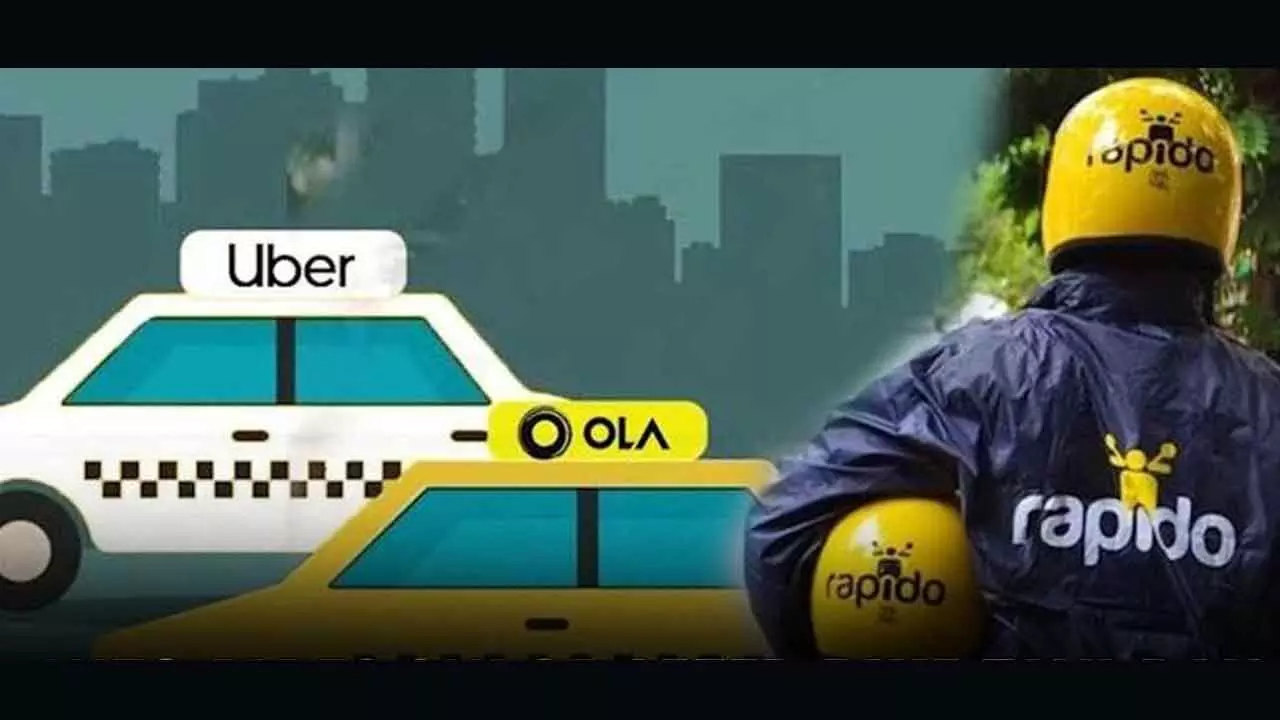Bengaluru Commuters Reel as Bike Taxi Ban Sparks Auto Fare Hikes; MP Calls for Strict Fare Enforcement
Bengaluru's commuters are facing increased auto fares following the recent bike taxi ban. Learn how MP PC Mohan is urging the government to enforce fare caps and what's next for app-based transport services in Karnataka
Bengaluru Commuters Reel as Bike Taxi Ban Sparks Auto Fare Hikes; MP Calls for Strict Fare Enforcement

Bengaluru, the Silicon Valley of India, is currently grappling with a pressing issue that's hitting its commuters right in their wallets: a significant surge in app-based auto rickshaw fares. This unwelcome development comes hot on the heels of the Karnataka High Court's directive, effective June 16, which put the brakes on bike taxi services offered by popular aggregators like Ola, Uber, and Rapido.
The ban, intended to bring regulatory clarity to the burgeoning bike taxi sector, has inadvertently created a void in affordable urban mobility, leading to noticeable distress among daily commuters. Adding his voice to the growing chorus of concern, Bengaluru Central MP PC Mohan has stepped forward, strongly urging the state government to enforce the pre-existing minimum fare of ₹35 for app-based autorickshaws.
"The withdrawal of low-cost bike taxis has undeniably impacted urban mobility," Mohan highlighted, pointing out that Bengaluru commuters are now experiencing fare hikes of up to 25% for auto rides. This substantial increase is a direct consequence of the sudden absence of a more economical alternative for last-mile connectivity.
The genesis of this entire situation traces back to an April order by a single judge of the Karnataka High Court. The court's stance was clear: unless the State Government outlines specific guidelines under Section 93 of the Motor Vehicles Act, 1988, and its accompanying rules, aggregators cannot operate bike-taxi services. Furthermore, the court held that the state's transport department couldn't be directed to register motorcycles as transport vehicles or issue "Contract Carriage Permits."
However, the legal battle isn't over. A ray of hope emerged on Tuesday as a division bench, led by acting chief justice V Kameswar Rao and justice CM Joshi, began hearing appeals. These appeals were filed not only by the affected aggregators – Ola, Uber, and Rapido – but also by two individual bike owners whose livelihoods have been directly impacted by the ban.
Senior advocate Dhyan Chinnappa, representing the bike owners, passionately argued that the ban infringes upon their constitutional right to engage in lawful business. "I have a fundamental right to operate my business. If the law operates and you prevent it then it cannot be done. This is the grievance of the bike owners," he reportedly told the court, emphasizing the personal toll of the ban.
Chinnappa further contended that Karnataka's existing Aggregator Rules already encompass two-wheelers, and importantly, the Motor Vehicles Act permits the registration of two-wheelers as transport vehicles. He underscored that there are no legal restrictions on contract or transport carriage in this regard, and notably, bike taxis operate legally in as many as 11 other Indian states, showcasing a clear precedent.
Meanwhile, MP PC Mohan has turned his attention to Transport Minister Ramalinga Reddy, calling for decisive action against app-based auto aggregators who, he alleges, are circumventing the fare limits previously established by the Karnataka High Court.
"In May 2024, the high court upheld the transport department’s November 2022 fare cap -- ₹30 base fare + 5% service charge + 5% GST. Fares must not exceed this," Mohan reiterated, stressing the need for strict adherence. He further elaborated on commuters' grievances, stating, "Bengalureans have noticed a 25% hike in auto fares on ride-hailing apps in recent days. They continue to levy arbitrary charges such as surge pricing, pick-up fees, and tips, resulting in commuters paying well above the notified fares.”
Mohan's message to the transport department is unequivocal: "I urge the transport minister to direct the transport department to issue notices to all aggregators and ensure the fare notification is fully enforced. Enforcing regulations is a core government duty, and the transport department must uphold its responsibilities diligently.”
During the ongoing court hearing, Chinnappa also raised a critical point about the state's seemingly arbitrary denial of contract carriage permits to an entire category of vehicles. He highlighted that a "class refusal of registration (of all motorcycles)" is absent in the Motor Vehicles Act. He further pointed out the stark contradiction between the state's current stance and its earlier withdrawal of the e-bike policy. "There is complete contrast in the stand taken with regards to e-bike and now," he remarked, concluding with a powerful sentiment: "Everyone wants a cheapest and fastest mode of transport. A welfare state cannot simply say it will not allow you to operate.”
The fate of bike taxis and the future of app-based transport fares in Bengaluru hang in the balance, with the matter slated for another hearing on Wednesday at 2:30 pm. Commuters and transport stakeholders alike will be keenly watching the developments, hoping for a resolution that brings both regulatory clarity and relief to the city's bustling streets.

